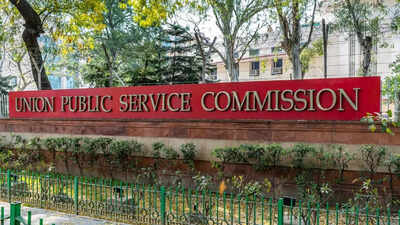ARTICLE AD BOX

UPSC CSE Mains Result 2025 out
When the Union Public Service Commission released the Civil Services (Main) Examination 2025 result on 11 November, it did more than shortlist 2,736 candidates. It re-opened one of India’s longest-running conversations: Who gets to serve the State, and on what terms of intellect and temperament?The number looks sterile on paper, but it is the residue of a year’s worth of attrition — from lakhs of aspirants, through Prelims, through the long dusk of Mains preparation, to this moment when 2,736 names remain.
Ahead lies a final ordeal dressed in civility: The Personality Test at Dholpur House, where the written word gives way to spoken thought.
UPSC CSE 2025 interview schedule: Dates and patterns
UPSC has said in its official notice that the interview schedule will be released in due course, but the institution’s rhythm is predictable to those who’ve observed it. In the 2024 cycle, interviews ran from 7 January to 17 April 2025; in 2023, they began on 30 January and closed in May. Going by this pattern, 2025’s Personality Tests are likely to begin early January 2026 and span nearly four months. Every candidate will receive an e-Summon Letter, which will assign a forenoon (9 am) or afternoon (1 pm) session. For those planning travel, UPSC offers no surprises — and no mercy. The venue is fixed; requests to alter dates are rarely entertained. The Interview Schedule PDF will appear on otis official site (upsc.gov.in), and that is the only noticeboard that matters.
DAF decoded: What it really is and why it decides more than you think
Before you enter Dholpur House, you must pass through a quieter gate: The Detailed Application Form, Part II (DAF-II). It looks procedural but carries the weight of bureaucracy’s first handshake with the citizen-in-waiting.This is where you declare not just your educational qualifications, but your preferences — which service, which cadre, which optional subject. It also re-confirms your social category, domicile, and personal particulars, all in prescribed formats.The DAF-II window opens roughly two weeks after the Mains result. In the 2024 cycle, it was open between 13 and 19 December. Expect a similar timeline this year. It is filled online only, and delay means automatic disqualification. Each uploaded document is a miniature act of integrity; each unchecked box, a potential self-sabotage.When the DAF closes, UPSC begins the process of document verification and scheduling.
The e-Summon follows, the interviews begin, and for the next few months the Commission becomes a rehearsal space for the State’s future administrators.
Beyond the UPSC CSE interview: What happens after you face the Board
Once the interviews conclude, UPSC aggregates marks from the Mains and the Personality Test to publish the final merit list. The list is more than a ranking; it is a social map of India’s administrative pipeline — who came from where, and how far determination travelled against privilege.Those who make the cut then enter the labyrinth of service allocation. Based on rank, category, and preference (as stated in the DAF), the Commission forwards recommendations to the Department of Personnel and Training (DoPT). From there, the IAS selectees head to the Lal Bahadur Shastri National Academy of Administration (LBSNAA) in Mussoorie, while IPS officers proceed to Hyderabad, and IFS officers to Delhi for their own training schedules.The probation that follows — two years for most All-India Services — is the quiet counterpart of the loud exam season. It is here that intellectual success is slowly reshaped into administrative sensibility.
The invisible syllabus: What the UPSC interview process really tests
Every year, this three-tiered system — Prelims, Mains, and Interview — is celebrated for its rigour. But its genius lies elsewhere. It rewards not just memory, but judgment; not just brilliance, but balance.Inside Dholpur House, candidates are not asked to recall dates of Mughal emperors but to imagine themselves as district magistrates during a flood, or as officers caught between legality and empathy. The question is not “What do you know?” but “How do you decide?”That is why the Mains result, while technical, always carries philosophical weight. It marks the moment when the preparation to become an officer ends, and the preparation to be one begins.

 1 hour ago
5
1 hour ago
5








 English (US) ·
English (US) ·